Couples Who Need To Sleep In Separate Beds To Fall Asleep As They Get Older Usually Have These 11 Reasons
Falling asleep becomes more difficult with age and it may lead to couples sleeping in separate beds.
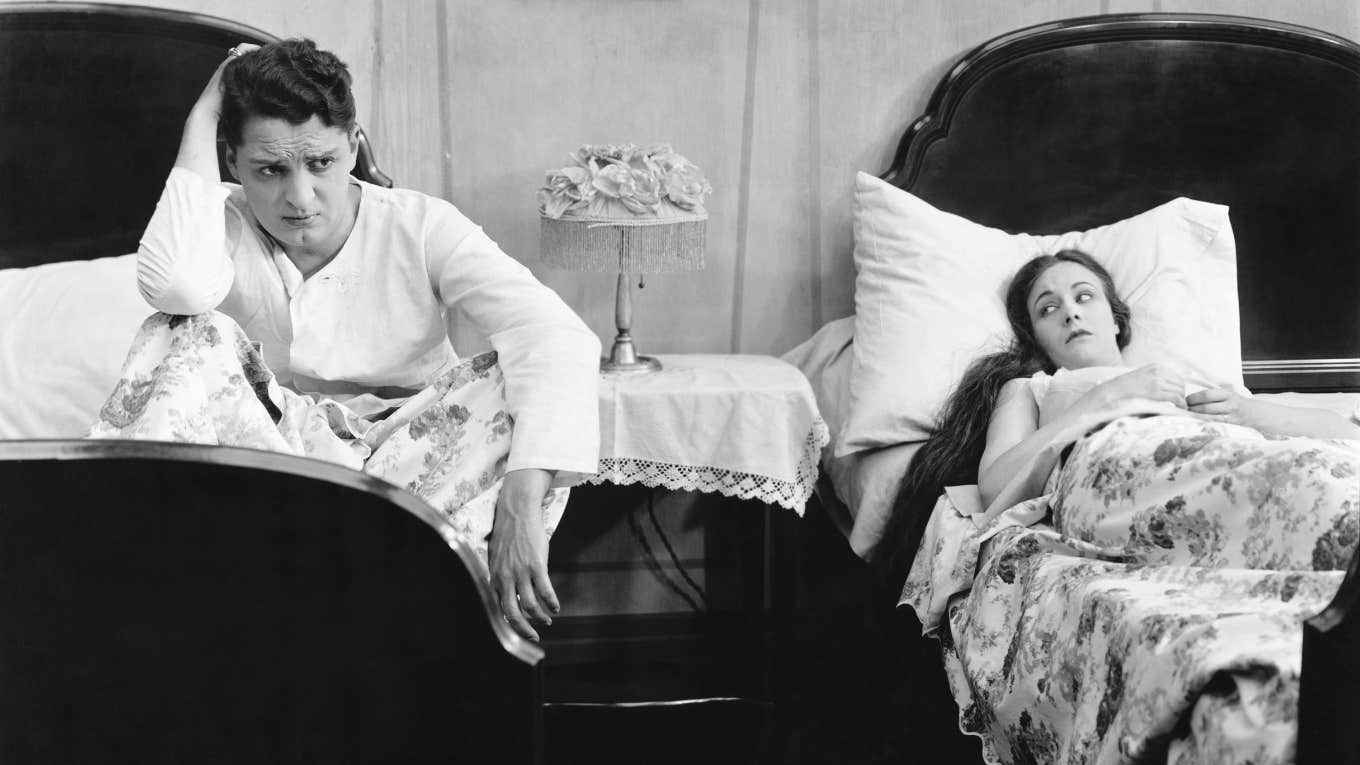 The Everett Collection via Canva
The Everett Collection via Canva Have you heard of sleep divorce? It’s the idea that while a couple may still be together, they choose to sleep in separate beds. This concept always makes me think of an episode of "I Love Lucy." Sleeping in different beds (or rooms, depending on the relationship) was the norm during the early 20th century. There were many reasons why couples chose to sleep in their own beds back then, ranging from the lower cost of a twin bed to concerns that sharing a bed might cause health issues. Portrayed in movies and on television, sleeping alone was the trend.
By mid-century, a shift had occurred. Double beds became more affordable, and Hollywood began showing their stars sleeping side by side. Now, we are most familiar with sharing a bed with our significant other. However, some choose to take the sleep divorce route to help them fall asleep more easily. “Snoring, body heat, restless legs, insomnia, different schedules and a yearning for personal space are just some of the reasons why some happy couples choose to sleep apart, whether in separate beds in the same room, or in separate rooms altogether,” wrote A. Pawlowski, a health reporter at TODAY Digital. And while each couple has its own reasons for choosing to sleep in separate beds, some are fairly common.
Couples who need to sleep in separate beds to fall asleep as they get older usually have these 11 reasons
1. Snoring
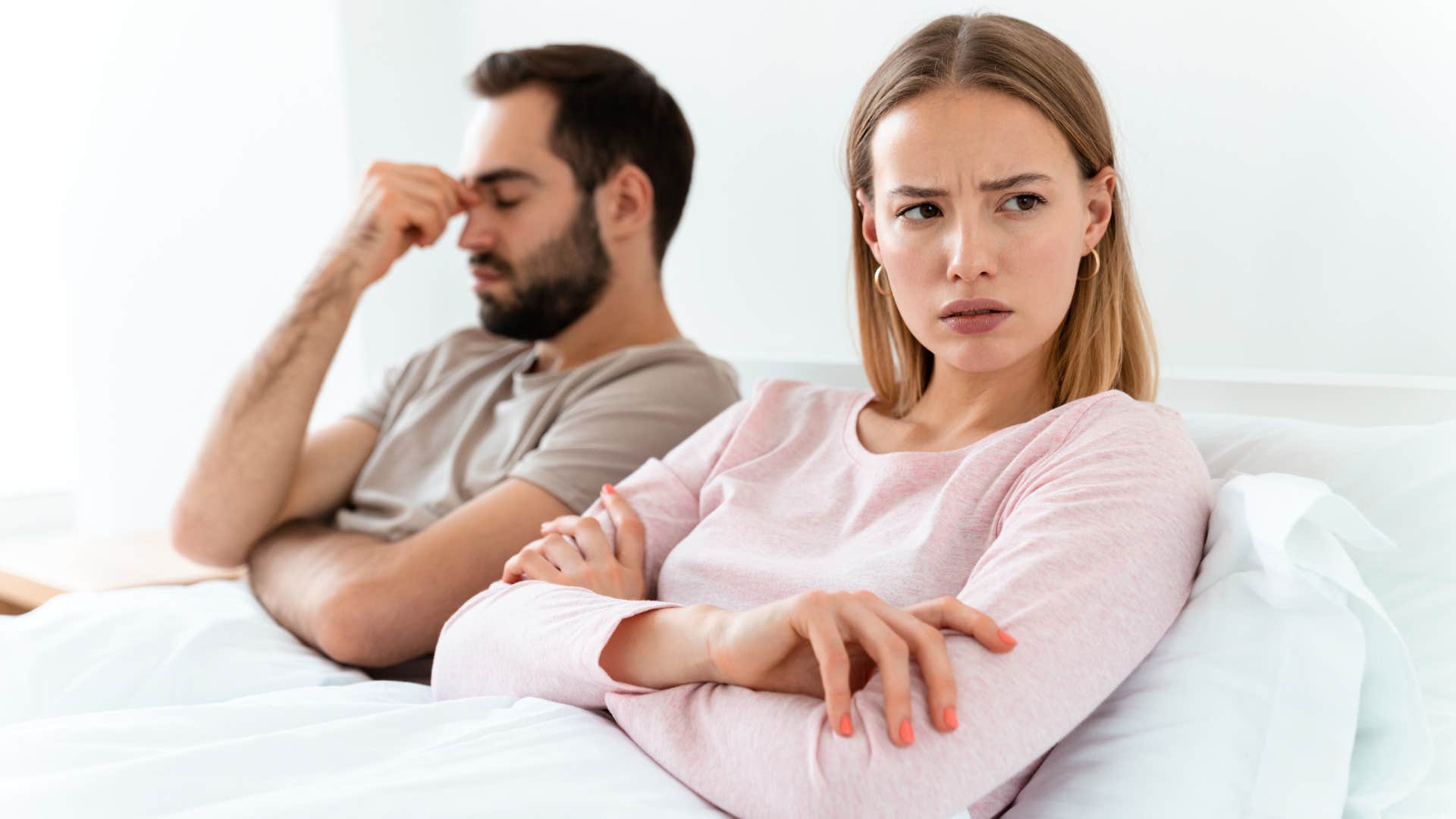 Dean Drobot
Dean Drobot
When it comes to having trouble sleeping next to a partner, a major complaint is snoring. Falling asleep next to a snorer can be nearly impossible. I love my partner, but they have a wild snoring problem. We’ve remedied this by falling asleep at different times, and I wear earplugs. However, some couples would rather sleep in different beds altogether when the snoring becomes too much.
“My husband and I started in a one-bedroom house, and for 3 years, I would get up and go to the couch due to his intense snoring and sometimes violent flying arms and elbows. Then we got a 3-bedroom house, and I set up a guest bedroom and started going in there every night. Eventually, we came to terms with it, and I made separate rooms. We bought the same mattress so we could sleep with each other anytime and still feel like our bed,” said one Reddit user.
"It’s now been this way for 13 years and wouldn’t change a thing," they continued. "It has literally saved my marriage because I was miserable for a long time before sleeping separately.”
2. Personal sleep struggles
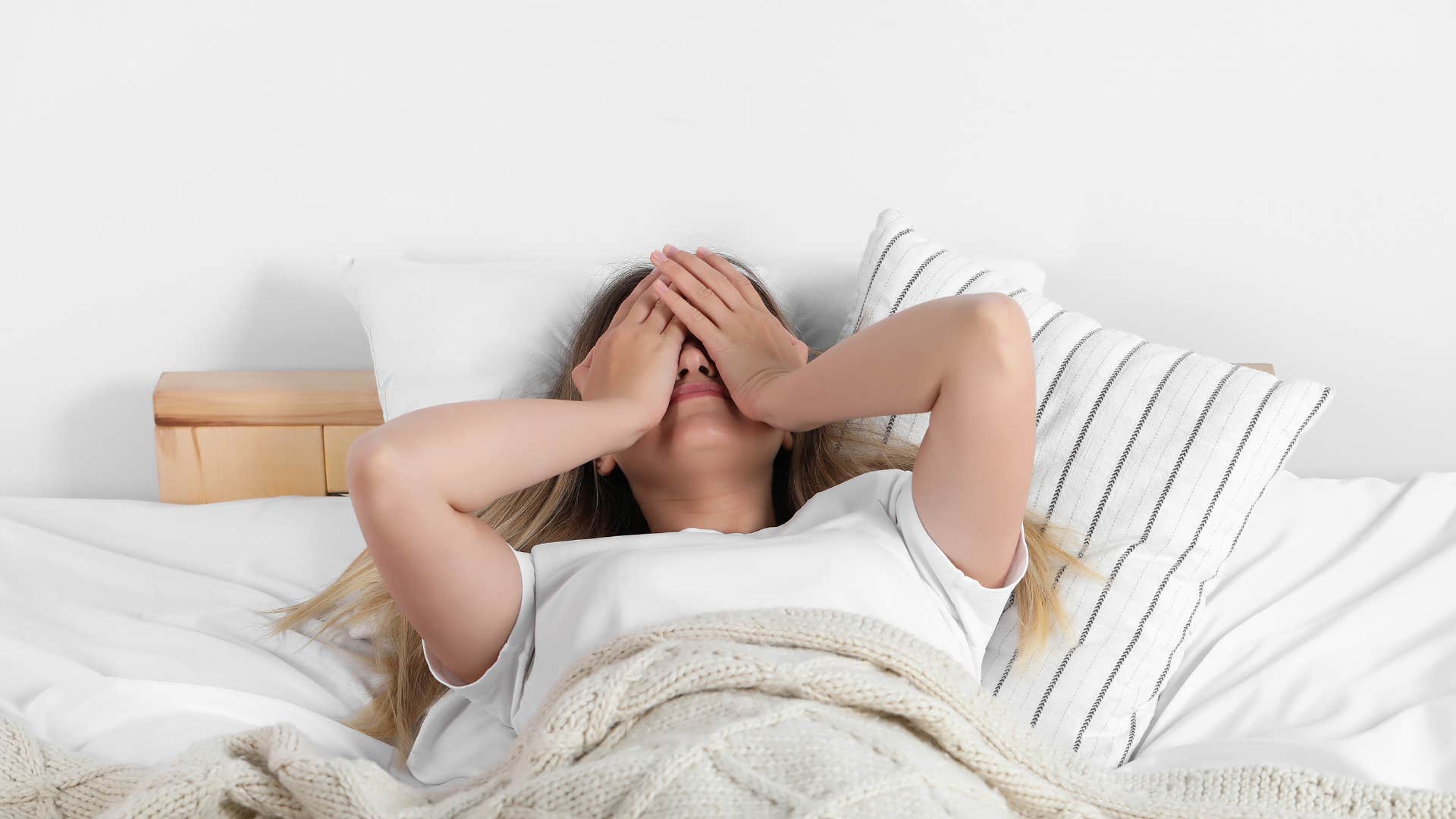 Africa images
Africa images
Sleep disorders are a common reason why a couple may choose to sleep in different beds. Intense insomnia, sleep apnea, or restless leg syndrome can be difficult to navigate when sharing a bed with someone else. Whether a partner has to wear a machine to regulate their breathing or is constantly getting up and down because they can’t sleep, these disorders can make a solid argument in favor of a sleep divorce.
Some people need space while falling asleep if they want to get a good night's rest.
“I have pretty bad insomnia sometimes, and when I have one of those nights, I toss and turn a lot,” said another Reddit commenter. “When it gets bad, I sleep in another room so as not to disturb my husband. I appreciate that he doesn't say anything because he is super sweet and understanding about it.”
Sleeping in a different room or bed can be the kinder approach for the person you love when you’re dealing with personal sleep struggles.
3. Chronic illnesses
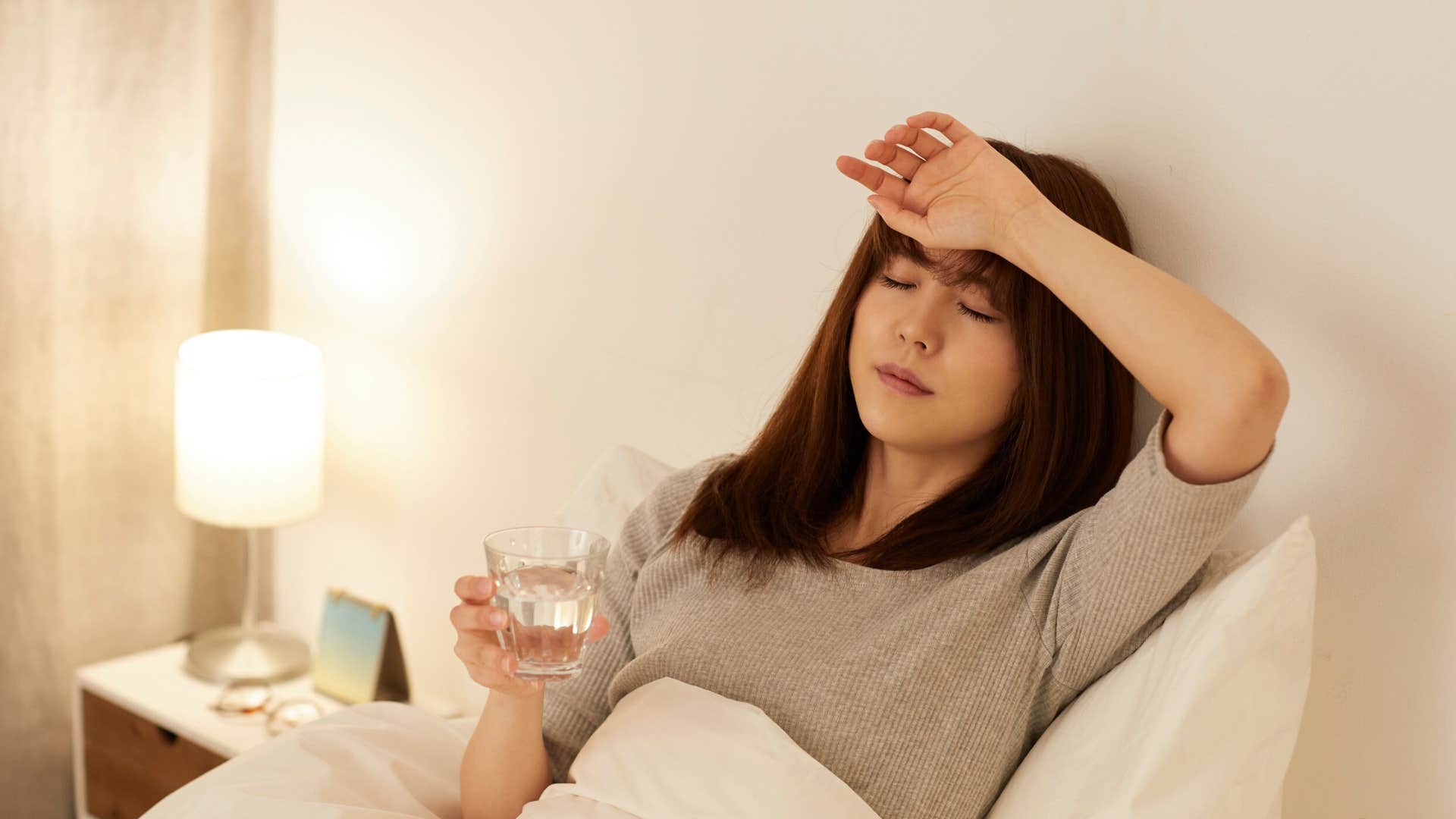 Aflo Images from アフロ(Aflo)
Aflo Images from アフロ(Aflo)
Chronic pain or illness can deeply impact someone’s sleeping patterns. When in pain, it can be hard to fall asleep. For the partner sharing a bed with someone with an illness, it can be nearly impossible for them to get to sleep. Of course, they want to be there for their partners, but they also require sleep themselves. As a remedy, some choose to sleep alone.
“Having more room to toss and turn and having the peace of mind in knowing that I’m not waking up my fiancé in the middle of the night because of it, is something we both know is what’s best. I already struggle so much every day, especially because of my chronic fatigue,” says writer Sarah Lee. “So being as comfortable as I possibly can despite the pain to ensure my quality of sleep is the best that it can be is of utmost importance so that I can live as ‘normal' a life as I can. I don’t have much control over anything else in my life due to my illness, so sleep is the one thing that we can.”
4. Different sleep schedules
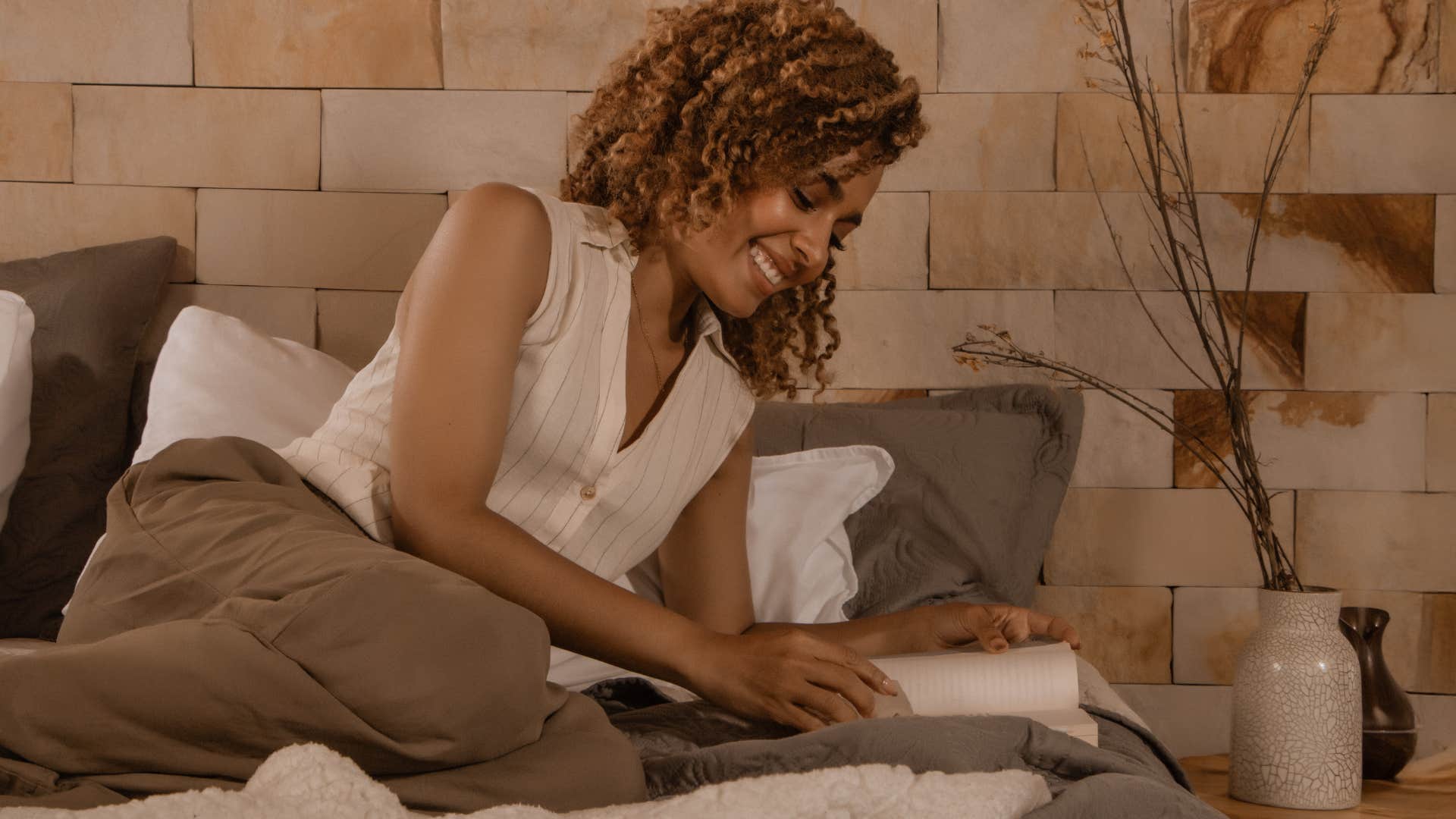 Lina Vanessa Merchán Jimenez from corelens
Lina Vanessa Merchán Jimenez from corelens
In my relationship, I am the early bird, and my partner is the night owl. I love to go to bed early and wake up before they do. It works best for us if I go to bed first, and they join later when they’ve had time to wind down.
Some couples may have different sleep schedules, like us, but others may have completely incompatible routines. Perhaps one person works the graveyard shift, while the other has a typical 9-to-5 schedule. Setting an alarm too early for a person who follows a different sleep schedule can prevent them from getting enough sleep. Likewise, joining your partner in bed after they’ve been asleep for several hours can disturb their sleep.
Couples who experience these issues may opt for sleeping in separate beds to improve their ability to fall asleep and stay asleep.
5. A need for different sleep environments
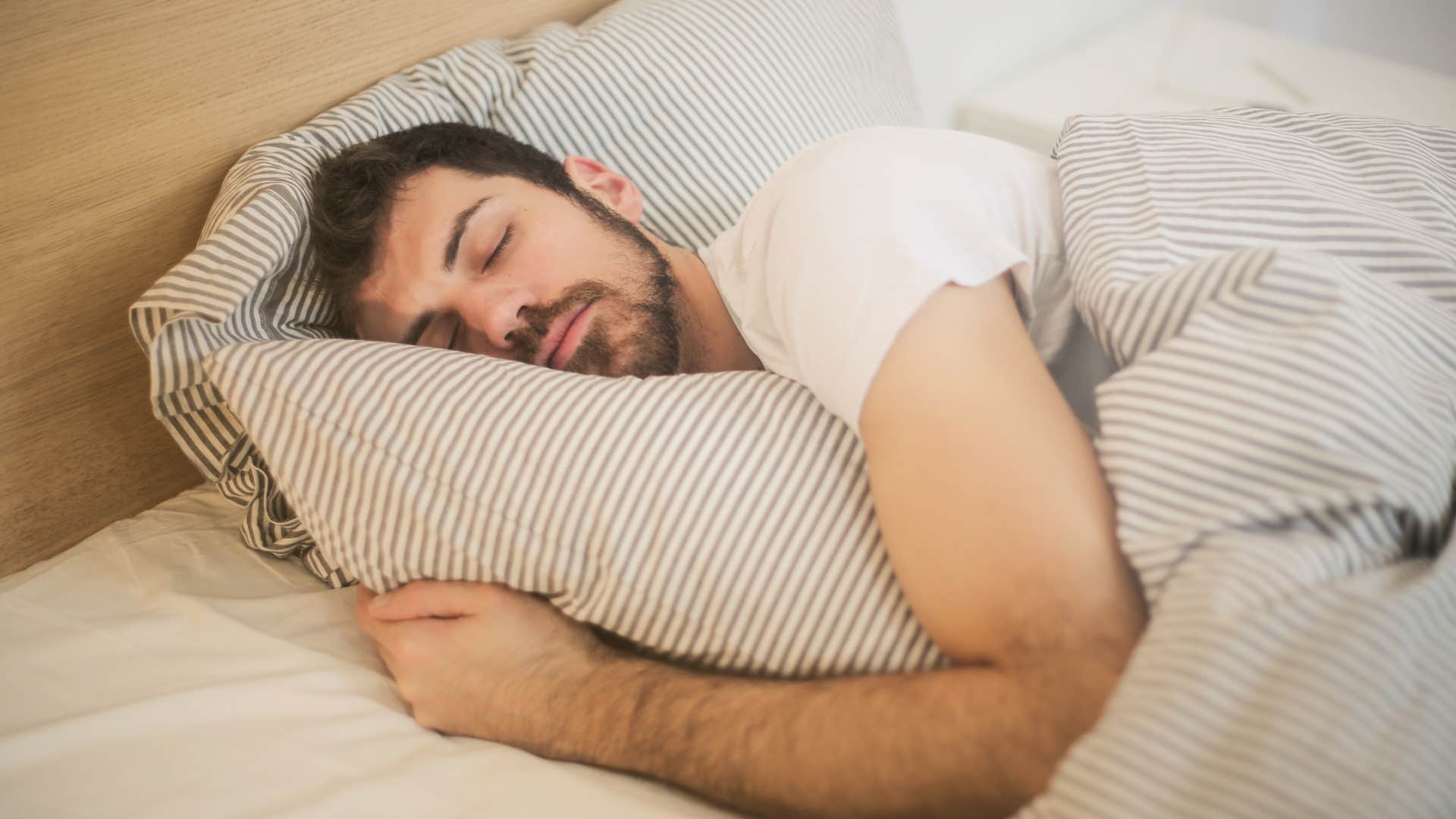 Andrea Piacquadio from Pexels
Andrea Piacquadio from Pexels
The environment I need to fall asleep in is not typical. I am a cold sleeper, so I need a fan to be running. I need a white noise machine that plays ocean sounds, preferably while the TV is on. I know that the last one is controversial. I understand that not everyone wants to sleep in such a unique (to put it nicely) way.
Couples who require different temperatures or noise levels may opt to sleep separately to help them fall asleep more easily. It’s not that they don’t want to sleep next to the person they love, but their environmental needs are something they choose not to sacrifice.
In this situation, a sleep divorce is often the best choice for everyone involved. I certainly couldn’t imagine sharing a bed with someone who needs the room to be warm and silent.
6. Varying comfort needs
 nesharm from Getty Images
nesharm from Getty Images
Have you heard of the Scandinavian sleep method? The concept is that couples sleep in the same bed, but use different sheets and comforters. For some, this is a sure-fire way to keep both people comfortable. However, those who have tried it without success may choose to sleep in a different bed altogether.
Sometimes, there’s more to sleep comfort than finding the right sheets and the best comforter, which can cause the Scandinavian sleep method to fall short. Finding the perfect mattress that works for each partner can be a difficult task. If someone prefers a firm option, while the other needs softness, it can be easier for them to sleep apart. Falling asleep on the perfect mattress matters.
7. A dislike of body heat
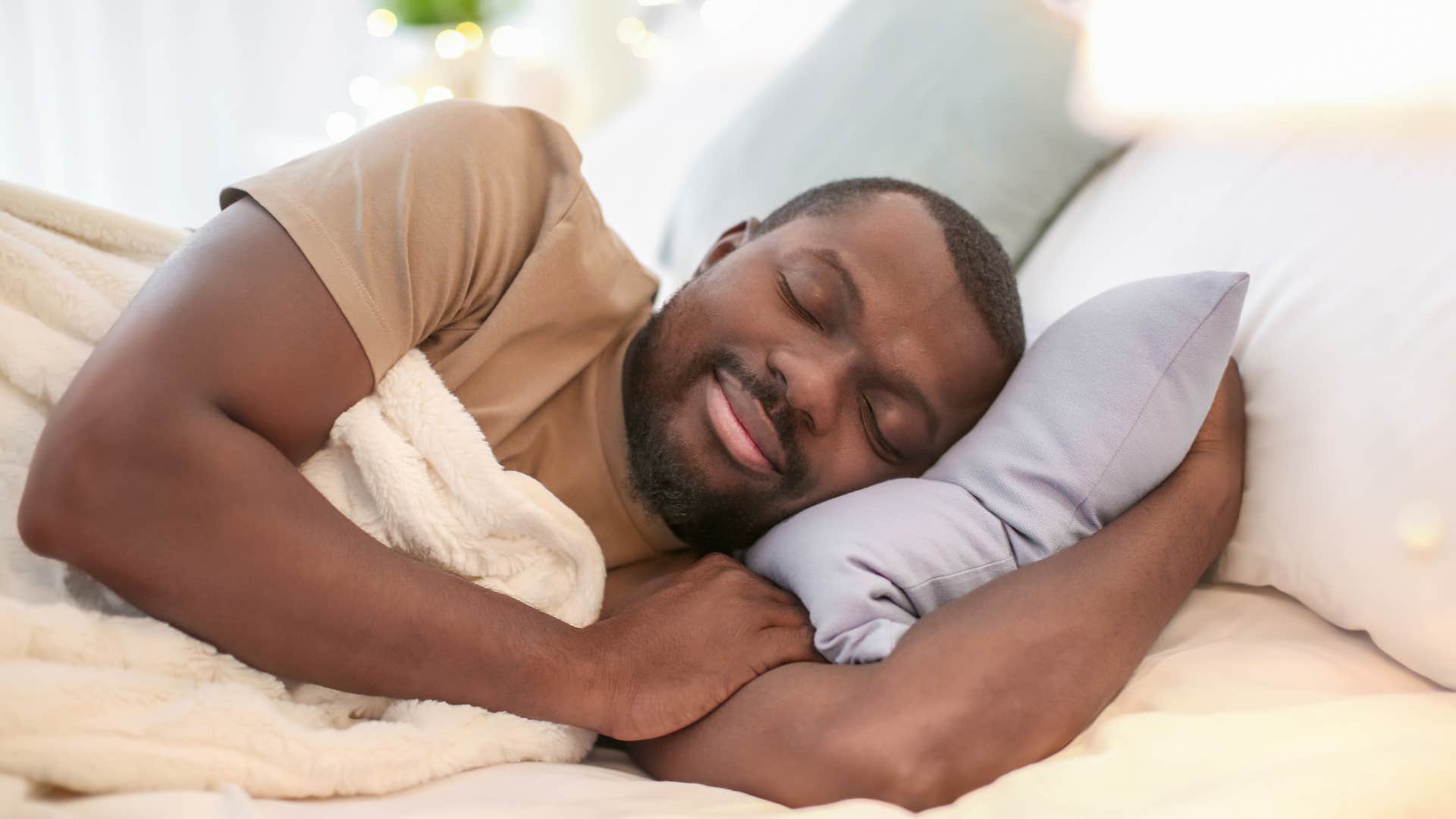 pixelshot
pixelshot
As someone who needs to sleep cool, I can relate to this reason. It’s hard to fall asleep when someone’s warmth is pressed up against me. For many, this can be comforting. For others, it can be something that hinders their ability to fall asleep.
“My inability to sleep well makes the hours of sleep I am able to get very important to me, and since bringing another person into the mix adds several more variables, like body heat, additional noises, and, like, touching, I actively avoid it,” wrote Scott Muska for NBC News. “My restlessness, combined with the abnormal environment (if we’re at my place), also isn't usually conducive to a partner getting a good night’s rest, unless they’re a very deep sleeper.”
8. The need for personal space
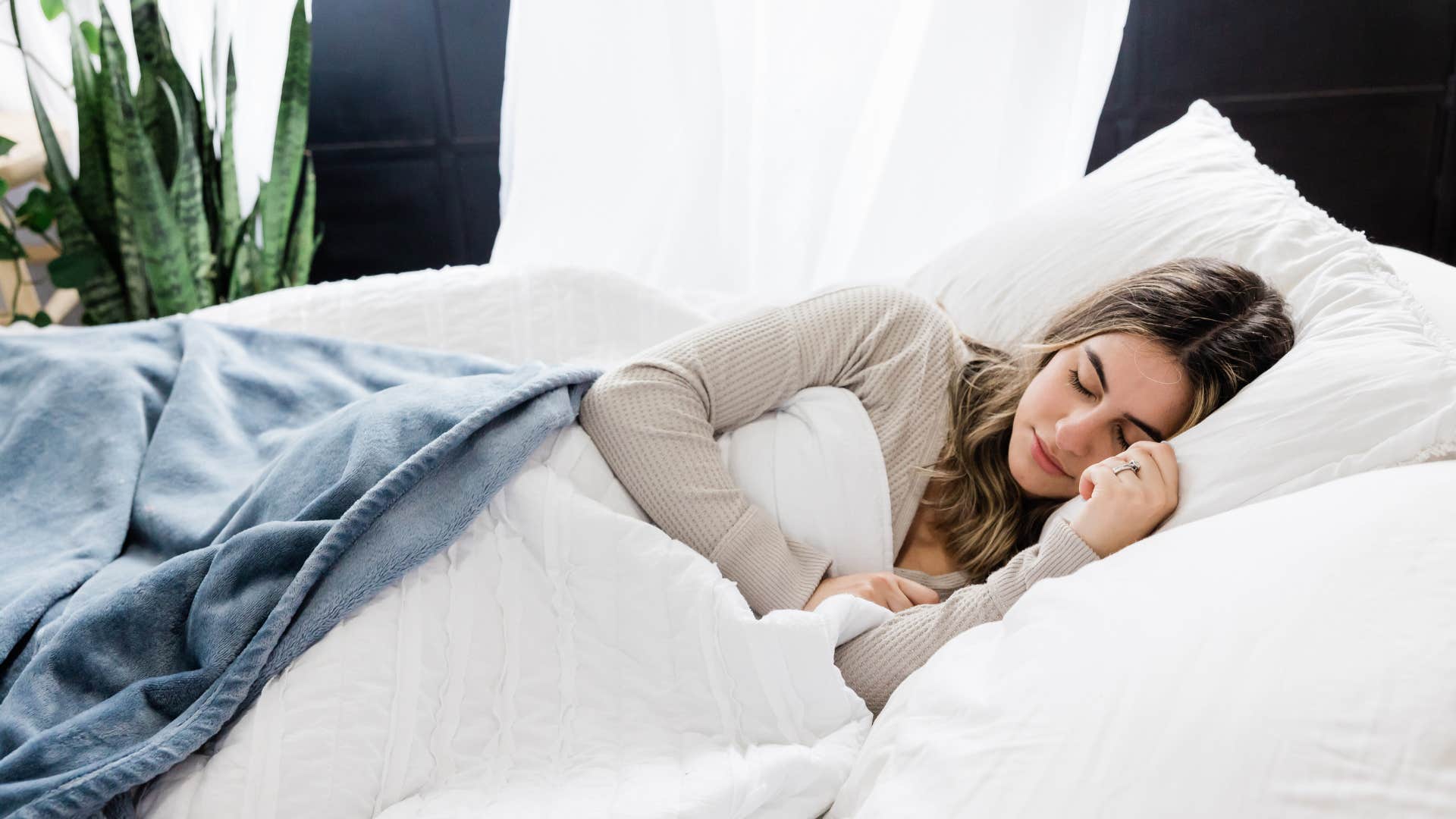 Susannah Townsend from baseimage
Susannah Townsend from baseimage
When someone values their personal space, sleeping next to someone can be difficult. Many adore sleeping so close to the person they love, but it’s not for everyone. Falling asleep alone can be easier for those who choose personal space over tight quarters with others.
Outside of the typical issues like sleep disorders, many couples are choosing to fall asleep alone because of a need for personal space.
“If you are sleeping alone while your partner is in another room, it may be due to relationship or personal space issues. In today's world, more than in the past, people are accepting of the need for personal space and sleeping apart, at least from time to time, may be a part of that,” says John Cline, Ph.D., for Psychology Today. Constant touching can make it difficult for those who value their own space to sleep.
9. Avoiding pets or children that disturb them
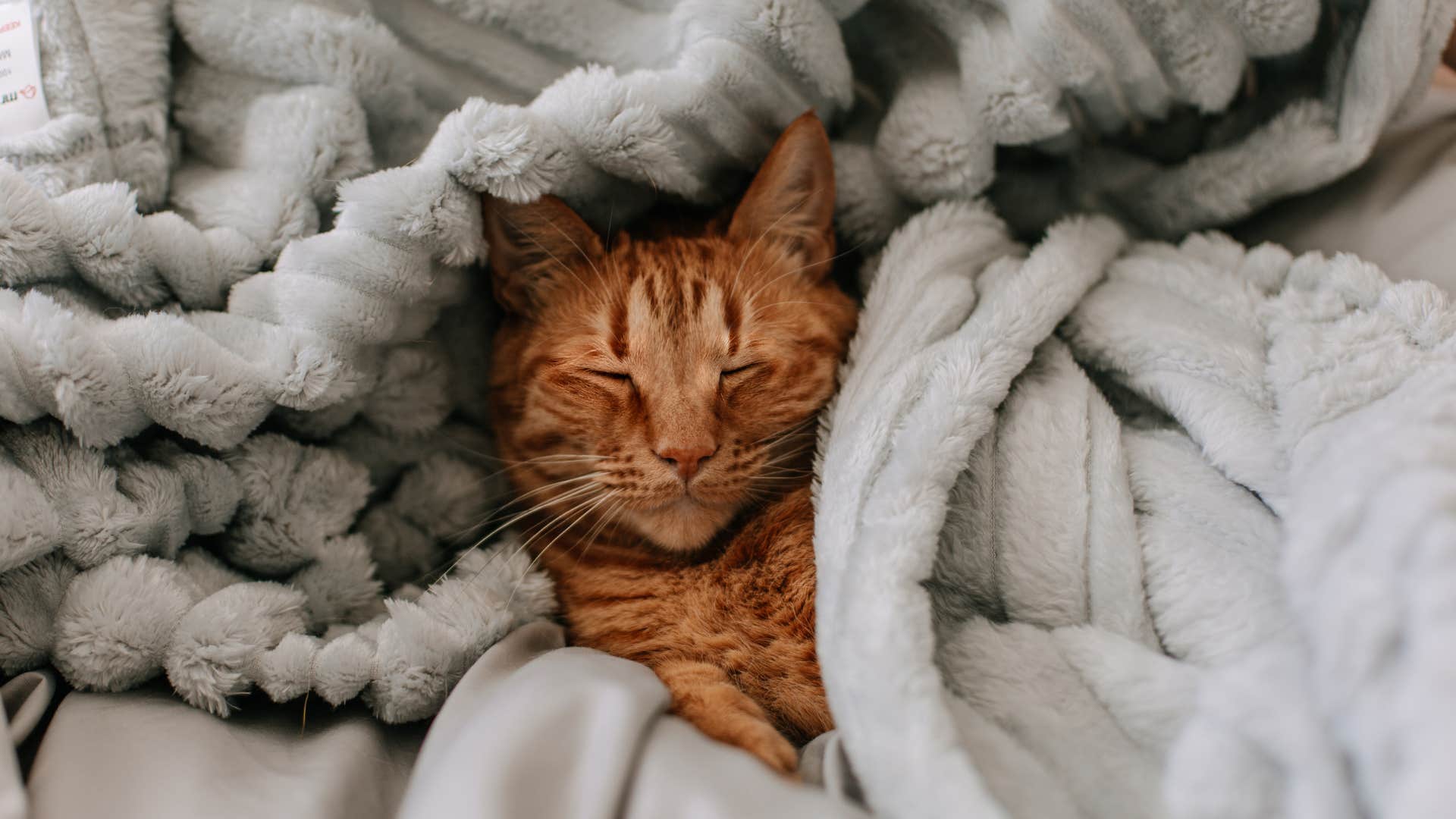 Shann Daniels from diversifylens
Shann Daniels from diversifylens
As someone who sleeps in bed with their two dogs every night, I am no stranger to disruptions from my furry companions. It’s difficult to sleep when a pet is restless, but I need one of my pets in bed with me to sleep. They provide a special kind of comfort. Thankfully, my partner loves our pets, while others can see it as a dealbreaker.
Having your sleep interrupted is frustrating. When one person values sleeping with their pet or sharing a bed with one of their children, couples can choose to sleep alone to fall asleep and stay asleep better. Sure, people may feel their pets or children are interrupting their sleep, but according to studies, sleeping with your dog actually improves sleep patterns. The Mayo Clinic found that even with a dog that occasionally woke up their owners, there was no drastic change to their sleep quality.
10. Frequent trips to the bathroom
 PR Image Factory
PR Image Factory
There are few things more frustrating than being constantly woken up by your bladder, right? According to the Cleveland Clinic, limiting fluids 2-4 hours before bed can help reduce the need to use the bathroom in the middle of the night. But for some, frequent trips to the restroom are unavoidable, and as a result, their partner may choose to sleep separately to avoid the constant movement.
“Your partner's sleep may also suffer from your frequent nighttime movement, potentially affecting relationship dynamics and intimate connections,” notes Mendwell Health. “This ripple effect demonstrates why treating nocturia is crucial for both individual and relationship well-being.”
For many, it is easier to skip sharing a bed than deal with the constant bathroom trips.
11. Noise sensitivity
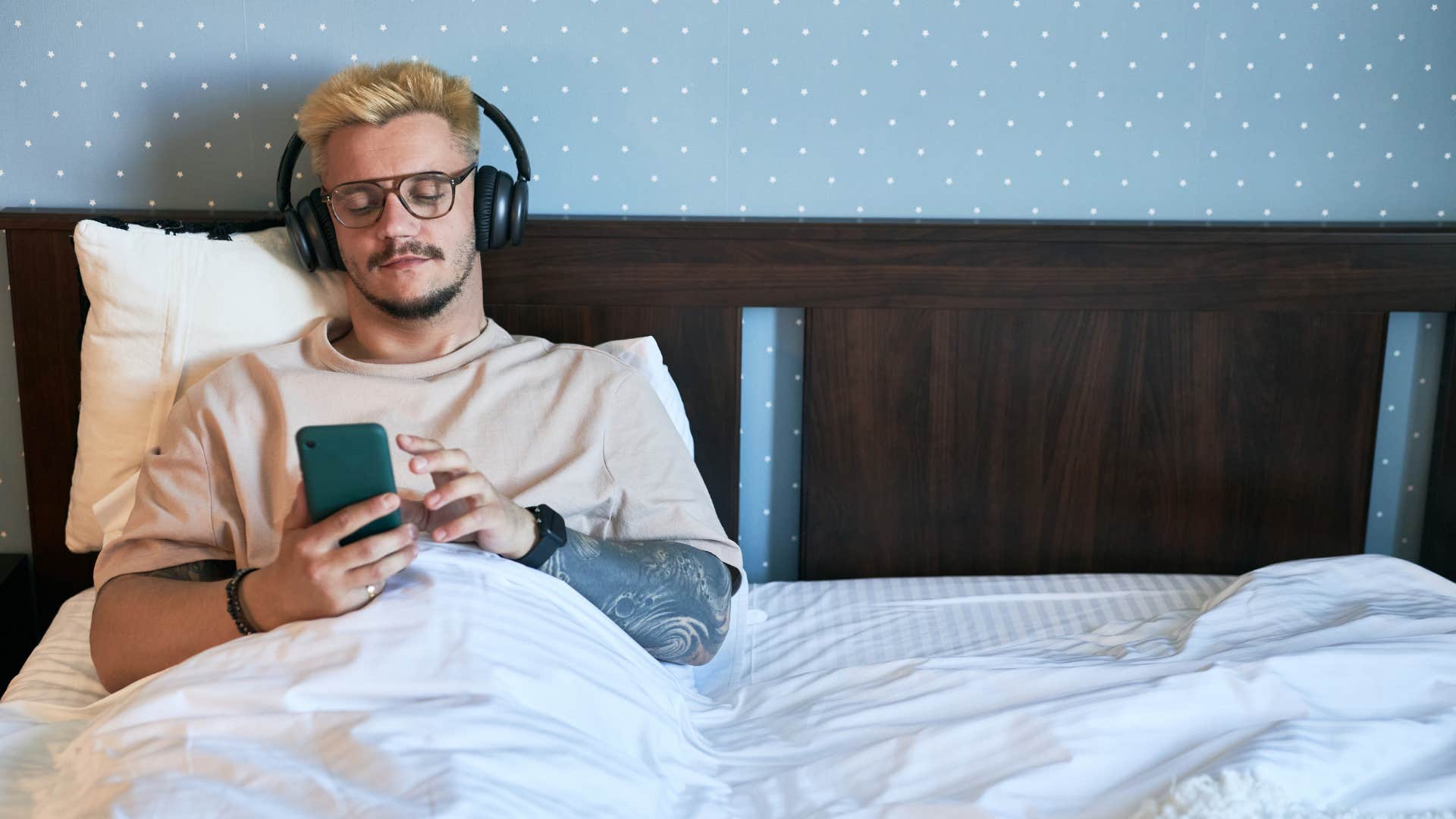 SeventyFour
SeventyFour
The noise levels that couples are comfortable sleeping at can vary. For some, white noise or TV sounds are needed to lull them to sleep, while others require complete silence. When two people have such differing sleep patterns, they may choose to sleep separately to fall asleep more easily.
One study found that 33% of American couples sleep alone entirely or on occasion. When there are dueling needs for noise and silence in the bedroom, it can be beneficial to have separate sleeping arrangements.
“We know that getting a good night’s sleep is important for both health and happiness,” said Dr. Seema Khosla. “So, if you’re continually sacrificing sleep quality and quantity — due to your partner’s persistent snoring, for example — then it may be time to discuss your sleeping arrangements. If snoring is the culprit, then you should encourage your partner to talk to a doctor about obstructive sleep apnea.”
Haley Van Horn is a freelance writer with a master’s degree in Humanities, living in Los Angeles. Her focus includes entertainment and lifestyle stories.

